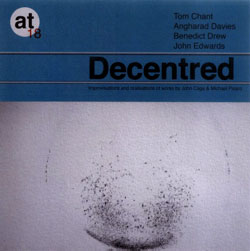
Improvisations and realisations of indeterminate scores by Michael Pisaro and John Cage from this trio originally brought together by a reading of Cardew's "Treatise".
Out of Stock
Quantity in Basket: None
Log In to use our Wish List
Shipping Weight: 5.00 units
Sample The Album:
Tom Chant-saxophones & bass clarinet
Angharad Davies-violin
Benedict Drew-electronics
John Edwards-doublebass
Click an artist name above to see in-stock items for that artist.
UPC: 5024545558128
Label: Another Timbre
Catalog ID: at18
Squidco Product Code: 11898
Format: CD
Condition: New
Released: 2009
Country: UK
Packaging: Jewel Tray
Recorded by Simon Reynell at St. James Church, Friern Barnett, North London on January 4, 2009.
"The album, is a combination of three Michael Pisaro scores taken from his Harmony Series folio, John Cage's composition Four6 and two improvisations. It begins and ends with a Pisaro piece, with the half-hour long Cage realisation at its centre and the other tracks spaced between. The three Pisaro pieces are all scored for two musicians playing sustaining instruments. I am a big fan of Pisaro's Harmony Series. There are thirty-four compositions in the set, each based upon a poem, or a fragment of it. The scores usually involve only part instructions for the musicians, rarely indicating particular instruments or pitches, but often describing the type of sound that should be played, with parameters set for how and when they might be used. Not all of the pieces are scored for duos, but the three pieces chosen here are for just two musicians.
The first, based on a William Bronk poem is performed by Davies and Edwards. Their realisation is a dry, sparse piece with a vaguely Malfatti-esque tone to it, slides of grey tones spaced apart by silences, sometimes coinciding with each other. Angharad has worked quite a bit in this area of composition, indeed she is one of the music's most respected musicians, but the interesting thing to me is the involvement of John Edwards in this track, and in the album in general. He plays the piece beautifully well, as one would expect from such a skilled musician, but the piece seems so far away from what we know him as, a powerful, expressionistic bassist whose heart is rooted in improvisation. At the danger of sounding very boring through repeating myself, the fact that Edwards (and to some degree Chant) are involved with this project is testament to the current feeling of openness and cross-fertilisation prevalent in London right now. The second Pisaro piece is similar but different. Played by Davies and Chant the score asks one of the musicians to play a single pure tone for at least two of the piece's five minutes while the other is given rough instructions on how and when they should play a certain number of pure sounds themselves. Davies takes the role of inserting the two minute sound, which she elects to play right from the outset, a quiet, hissing sound played on the violin. When she stops after a couple of minutes we are suddenly very aware of the sounds creeping into the recording from outside the church in which it was recorded. They are faint and unobtrusive, but after the continuous sound their presence is suddenly heightened, interrupted by Chant's occasional additions to the music. This track is so very simple, like the short poem (by Beckett) that inspired it, just a few lines carefully placed in white space. The final, short (three minute) piece, based again on Beckett's words is played by Drew and Edwards, and again the soft ambience of North London is framed by a series of short, quiet tones picked out in turn by the musicians. For me the beauty of this music is in the simplicity of it, tiny forms created with simple raw materials. The three Pisaro pieces work very well weaved around the busier Cage score and the improvisations, little interludes of calm, carefully constructed music that won't be everyone's cup of tea but are certainly mine.
The performance of Cage's Four6 is maybe the highlight of the album though. The score asks the musicians (all four here) to select twelve sounds, which they then place into time brackets dictated by Cage, or rather by a randomising computer programme he used to write the piece just before his death in 1992. If the score is taken literally just about any outcome is possible. Here though the musicians work together in a gentle, yet occasionally tense and abrasive manner. The question for me here is if I would be able to guess this was an improvised work if I did not already know. Certainly it would be difficult to tell. The music has a spacious, slow feel to it because of the way the sounds are distributed amongst the thirty minute duration, but otherwise there are few giveaways. It is lovely music throughout. At times it feels very obvious that the musicians are not playing 'together' as they come and go at abrupt moments, but elsewhere when two or more sounds combine it feels all very natural and determined. Its a really nice piece though, a well balanced combination of sounds (presumably not discussed in advance) just enough to give the music an edge, but also to allow it all to gel together in a natural manner.
Any question about how improvised the Cage piece may have been are answered when you hear the two improvisations here though. In comparison, they sound so much more busy, wild and obviously unplanned. I have no idea how I can justify this claim, but the musicians also seem to relax when they move into the improv pieces. Maybe this is just a feeling sensed through the freeform method of playing, the restriction of the score removed, but there is almost a sense of relief audible in the first moments of each improvisation. Drew and Edwards in particular sound much more alive, boisterous and busy. Drew has often been the self-igniting firework of so many improv performances I have seen this year, and although he remains relatively restrained throughout this album it is in the improv pieces that his tense energy shines through, met well by the other musicians around him. Both of the improvisations sound alive when placed beside the compositions around them, and like Wedding Ceremony, a similar release from this year that asked a group to mix modern compositions with improvised sets the contrast between the two is marked.
It is not that one way of making music is necessarily more valid than the other, certainly not, and I enjoy all of the tracks on Decentred. The album works well for me though in highlighting how a score, however loose or simple usually results in music so very different to improvisation. The intriguing elements of this album, for me at least come through listening to the different ways the musicians respond, how those that are rarely involved in anything like this react to the constraints that composition places on the relationship they have with their colleagues, and then how they change when those restraints are removed. Decentred is a fascinating CD that probably reveals more about the musicians than the scores they are playing (something Cage and Pisaro would probably like). It is also full of beautiful, engaging music."-Richard Pinnell, The Watchful Ear

The Squid's Ear!
Artist Biographies
• Show Bio for Tom Chant "Tom Chant: Born 8th March 1975, Dublin. Tom began piano lessons when he was eight years old. After getting increasingly inspired by jazz, free jazz and modern composition as a teenager he attended an A-level course in music in 1993 with teachers Philip Flood - composer; jazz trombonist Mark Bassey; and pianist Chris Wilson. He bought his first soprano saxophone in 1995 and began improvising soon after when he started attending singer Maggie Nicols' weekly Gathering night. Around this time Tom attended composition classes with Sam Haydn and was a member of a contemporary music hand-bell group led by Pete Devenport, both at South London music centre Musicworks. His first recordings were from this period, with Gwen Jamois, as the Sycophants - an electronic music duo. They recorded for the record labels Ninja Tune and Lo Recordings. In 1997, Tom started recording with Jason Swinscoe, founder of the Cinematic Orchestra. Through his parents, Michael Chant and Carole Finer - who were both members of the Scratch Orchestra - he met Eddie Prévost, AMM's master drummer, who created the Eddie Prévost Trio with Tom on saxophones and John Edwards on double bass. With both groups (and a couple of others) he has toured all over North America, Europe and Japan. He has played at major festivals like North Sea Jazz, Montreux, Sonar, Vancouver Jazz, Ulrichsberg Kalaidaphon, Nickelsdorf, Fuji Rock, Only Connect at London's Barbican Hall, Ether and the LMC festival at London's South Bank Centre and at the Pompidou Centre, Paris and the Sydney Opera House. With the Cinematic Orchestra he has recorded the albums "Motion," "Remixes," "Everyday," "Man with a Movie Camera" and "Ma Fleur" for Ninja Tune, and with the Eddie Prévost Trio he has recorded the albums "Touch," "The Virtue in If," "The Blackbird's Whistle" and "All Change" for Eddie's label Matchless Recordings. He has appeared on Portuguese television with Telectu, Thai TV with Cinematic Orchestra and Welsh television with Rhodri Davies and has presented a weekly live music programme on Resonance FM radio in London. He has worked with internationally renown artists Bernard Purdey, Fontella Bass, Sunny Murray, Toshimaru Nakamura and Gerry Hemingway and with many London, Paris and Barcelona based improvisers including Steve Noble, Veryan Weston, Steve Beresford, Pat Thomas, John Bisset, Gail Brand, Sharif Sehnaoui, Agustí Fernandez and Pablo Rega and with the London Improvisers Orchestra which includes the likes of Evan Parker, Lol Coxhill, John Butcher and many more. He has worked with dance music acts like Coldcut, DJ Vadim and Bonobo and in Paris with dance group Compagnie Jot. Currently active groups include the Cinematic Orchestra, the Eddie Prévost Trio and Stripped Abstract." ^ Hide Bio for Tom Chant • Show Bio for Angharad Davies "Angharad Davies is a violinist, one at ease in both improvising and composition, with a wide discography as part of varied range of ensembles and groups. She's a specialist in the art of 'preparing' her violin, adding objects or materials to it to extend its sound making properties. Her sensitivity to the sonic possibilities of musical situations and attentiveness to their shape and direction make her one of contemporary music's most fascinating figures. 2015 has seen her being commissioned for a new work at the Counterflows Festival, Glasgow and premiering Eliane Radigue's new solo for violin, Occam XXI at the El Nicho Festival, Mexico. She's performed at, the Queen Elizabeth Hall, BBC Proms, Music We'd Like to Hear's concert series, is an associate artist at Cafe Oto, is a member of Apartment House, Cranc and Common Objects, been artist in residence at Q-02, and played live with Tony Conrad in the Turbine Room at the Tate Modern. Other collaborations have featured the likes of John Butcher, Daniela Cascella, Rhodri Davies, Julia Eckhardt , Kazuko Hohki, Roberta Jean, Lina Lapelyte, Dominic Lash, Tisha Mukarji, Andrea Neumann, Rie Nakajima, Tim Parkinson, J.G.Thirlwell, Stefan Thut, Paul Whitty, Manfred Werder, Birgit Ulher, Taku Unami and she's released records on Absinth Records, Another Timbre, Potlatch and Confrontrecords." ^ Hide Bio for Angharad Davies • Show Bio for Benedict Drew "Benedict Drew lives and works in Whitstable and Margate, in 2011 he graduated from the Slade School of Art. He has frequently collaborated with a diverse mix of artists and musicians including Nathan Budzinski & Auto Italia, Otomo Yoshihide, Rhodri Davies, Greg Pope, Emily Richardson, 'The Work In Progress', Sachiko M and Emma Hart. Performing often in the UK and internationally including Tate Modern, London; Yamaguchi Centre for Art, Japan; Rotterdam Film Festival; Kill Your Timid Notion, Dundee; ICA, London; Performa 09, New York; and The Museum of Contemporary Canadian Art. Drew has made many radio works for Resonance FM, most recently Concrete Decent Transmission for Writtle Calling. He was lead-artist for Chisenhale Gallery's Propeller Project (2012) and a LUX Associate Artist (2011/12). In 2012 he was shortlisted for the Jarman award." ^ Hide Bio for Benedict Drew • Show Bio for John Edwards "After taking up the bass, around 1987, John Edwards co-formed The Pointy Birds who went on to win awards for their music for The Cholmondeleys and Featherstonehaughs dance troupes. The group appeared at festivals in Glasgow, Edinburgh, Moers, Leverkusen, Copenhagen. Around 1990, Edwards played his first gigs with London improvisers such as Roger Turner, Lol Coxhill, Maggie Nicols, Phil Minton. Between 1990 and 1995 Edwards was a member of three touring groups simultaneously: B-Shops For The Poor, The Honkies and GOD. During this period he also became an increasingly regular player on the London improvised music scene and performed his first solo gigs; he composed and performed music theatre with the bass and cello duo The Great Explorers, street-busked a lot and appeared at many more festivals in Germany, Estonia, France, Italy, Czech, etc. Since 1995 John Edwards has become a "mainstay" of the London scene, playing with just about everybody, an activity that has seen him clocking up between 150 and 200 gigs a year. He has become regular player with Evan Parker, in many groupings, and with Tony Bevan, Veryan Weston, and Elton Dean, often in collaboration with Mark Sanders on percussion. He has become a more frequent player on the European (and festival) scene, appearing at Taktlos, Ulrichsburg, Nickelsdorf, Budapest, New Zealand and in the USA. He continues to work on solo performances." ^ Hide Bio for John Edwards
Have a better biography or biography source? Please Contact Us so that we can update this biography.
11/29/2024
Have a better biography or biography source? Please Contact Us so that we can update this biography.
11/29/2024
Have a better biography or biography source? Please Contact Us so that we can update this biography.
11/29/2024
Have a better biography or biography source? Please Contact Us so that we can update this biography.
Track Listing:
1. Reader, Listen: Harmony Series, No 10 (Michael Pisaro) 6:47
2. Activation 10:46
3. Four 6 (John Cage) 30:17
4. La Voix Qui Dit: Harmony Series, No.8d (Michael Pisaro) 4:57
5. Decentering 13:10
6. Flux: Harmony Series, No.8a 3:12
Improvised Music
Electro-Acoustic
Electro-Acoustic Improv
European Improv, Free Jazz & Related
London & UK Improv & Related Scenes
Free Improvisation
Quartet Recordings
Search for other titles on the label:
Another Timbre.


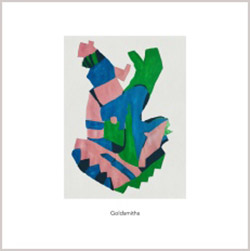

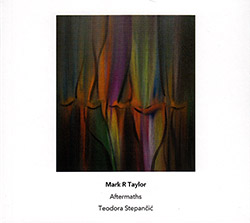
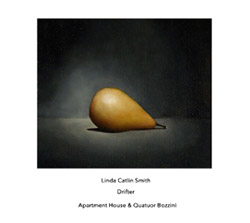
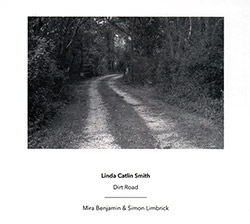
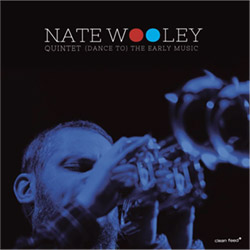



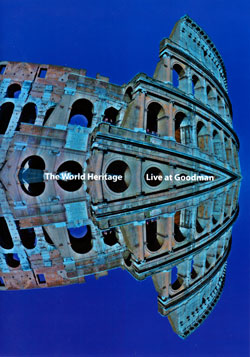

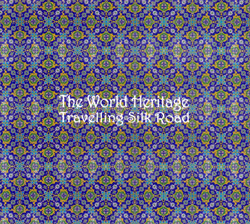
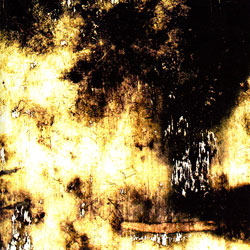
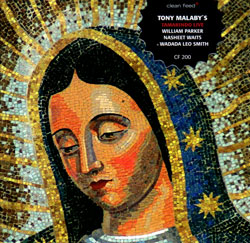
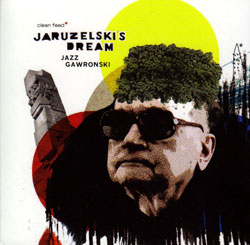
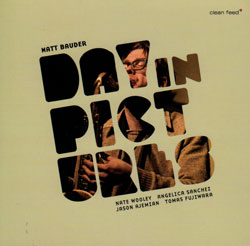
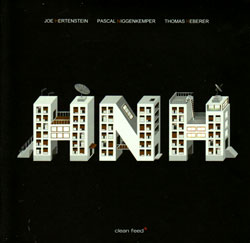
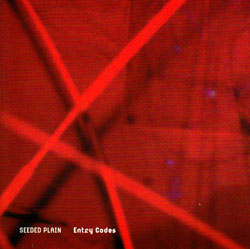
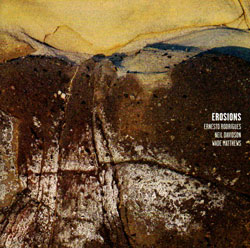
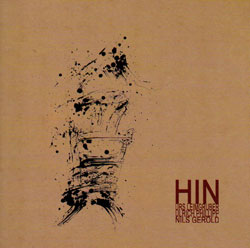
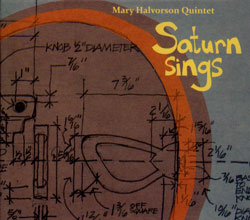
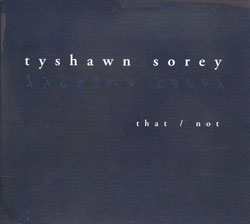
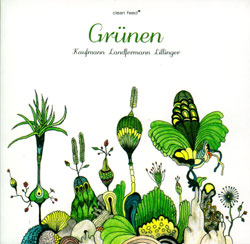
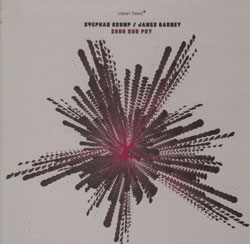
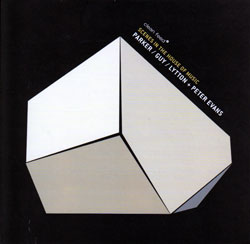




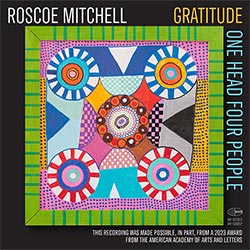
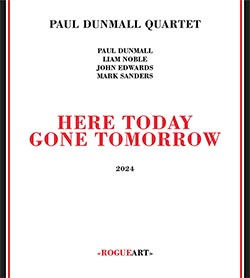
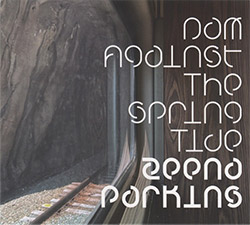
![Weston, Matt: Communism Has Appeared On The Scene [VINYL 2 LPs]](https://www.teuthida.com/productImages/misc4/35546.jpg)
![Coleman, Steve & Five Elements: PolyTropos / Of Many Turns [2 CDs]](https://www.teuthida.com/productImages/misc4/35476.jpg)
![Sorey, Tyshawn (w/ Diehl / Ragahavan): The Susceptible Now [DOUBLE VINYL]](https://www.teuthida.com/productImages/misc4/35477.jpg)


![John Coltrane Quartet (Coltrane / Tyner / Garrison / Jones): Impressions From Graz 1962, Revisited [2 CDs]](https://www.teuthida.com/productImages/misc4/35495.jpg)

![Guy, Barry / Ken Vandermark: Occasional Poems [2 CDs]](https://www.teuthida.com/productImages/misc4/34849.jpg)
![Novoa / Carter / Mela Trio: Vol.1 [VINYL]](https://www.teuthida.com/productImages/misc4/35236.jpg)


![Elephant9 : Mythical River [VINYL]](https://www.teuthida.com/productImages/misc4/34624.jpg)
![Evans, Peter (Evans / Eldh / Black): Extra [VINYL]](https://www.teuthida.com/productImages/misc4/35279.jpg)

![McPhee, Joe: Straight Up, Without Wings [BOOK]](https://www.teuthida.com/productImages/misc4/35454.jpg)
![Jeck, Philip: rpm [2 CDs]](https://www.teuthida.com/productImages/misc4/35455.jpg)









![Barker / Parker / Irabagon: Bakunawa [VINYL]](https://www.teuthida.com/productImages/misc4/35533.jpg)




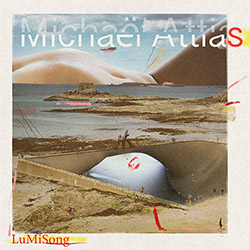
![Blaser, Samuel / Marc Ducret / Peter Bruun: Dark Was The Night, Cold Was The Ground [VINYL 10-inch]](https://www.teuthida.com/productImages/misc4/35492.jpg)






![Warren, Kenny (Warren / Hoffman / Ellman): Sweet World [VINYL]](https://www.teuthida.com/productImages/misc4/35451.jpg)




![Blake, Ran / Dave Knife Fabris: Live Amsterdam 2006, First Visit [CD + POSTCARDS]](https://www.teuthida.com/productImages/misc4/35275.jpg)




![DNS: Taking Big Bites Of The Khandas Three Cafes Deep [2 CDs]](https://www.teuthida.com/productImages/misc4/35334.jpg)




![Cleaver, Gerald: The Process [VINYL]](https://www.teuthida.com/productImages/misc4/34966.jpg)




![Alva Noto: HYbr:ID II [VINYL 2 LPs]](https://www.teuthida.com/productImages/misc4/35201.jpg)

![Baron, Derek / Luke Martin: Distinct and Concealed [CASSETTE + DOWNLOAD]](https://www.teuthida.com/productImages/misc4/35079.jpg)

![Lyle, Erica Dawn : Colonial Motels [CASSETTE + DOWNLOAD]](https://www.teuthida.com/productImages/misc4/35080.jpg)









![Sanna, Claudio: Compositori Sardi Contemporanei II [2 CDs]](https://www.teuthida.com/productImages/misc4/35317.jpg)







![Zurria, Manuel: Fame di Vento [3 CDs]](https://www.teuthida.com/productImages/misc4/35167.jpg)

![Granberg, Magnus / Nattens Inbrott / Skogen: Holde Traume, Kehret Wieder! [2 CDs]](https://www.teuthida.com/productImages/misc4/35038.jpg)
![Frey, Jurg: Outermost Melodie [2 CDs]](https://www.teuthida.com/productImages/misc4/35039.jpg)

![Pavone, Jessica: Reverse Bloom [VINYL]](https://www.teuthida.com/productImages/misc4/34895.jpg)




![Modney (Modney / Wooley / Gentile / Roberts / Pluta / Symthe / ...): Ascending Primes [2 CDs]](https://www.teuthida.com/productImages/misc4/34852.jpg)







![Elephant9 with Terje Rypdal: Catching Fire [VINYL 2 LPs]](https://www.teuthida.com/productImages/misc4/35355.jpg)
![Deerlady (Obomsawin, Mali / Magdalena Abrego): Greatest Hits [VINYL]](https://www.teuthida.com/productImages/misc4/34876.jpg)




![Haino, Keiji: Black Blues [2 CDs]](https://www.teuthida.com/productImages/misc4/35109.jpg)



![Surplus 1980: Illusion of Consistency [CD]](https://www.teuthida.com/productImages/misc4/35069.jpg)
![Staiano, Moe: Away Towards the Light [VINYL + DOWNLOAD]](https://www.teuthida.com/productImages/misc4/35037.jpg)



![Caveira (Gomes / Sousa / Abras / Ferrandini): Ficar Vivo [VINYL]](https://www.teuthida.com/productImages/misc4/34643.jpg)
![Gregg, J. J. / David Van Auken: Lunar Prairie [CD w/ DOWNLOAD]](https://www.teuthida.com/productImages/misc4/34611.jpg)

![Coultrain: Mundus [VINYL]](https://www.teuthida.com/productImages/misc4/32439.jpg)
![Mattin: Songbook #6 [VINYL]](https://www.teuthida.com/productImages/misc4/27317.jpg)
![Punkappella: Wake Up [7-inch VINYL]](https://www.teuthida.com/productImages/misc4/17519.jpg)
![Residents, The: WARNING: UNiNC.: Live And Experimental Recordings 1971-1972 [VINYL 2 LPs]](https://www.teuthida.com/productImages/misc4/31521.jpg)
![Coultrain: Phantasmagoria [VINYL]](https://www.teuthida.com/productImages/misc4/30142.jpg)
![Lennon, Sean Ono: Asterisms [VINYL]](https://www.teuthida.com/productImages/misc4/34517.jpg)

![Coley, Byron: Dating Tips for Touring Bands [VINYL]](https://www.teuthida.com/productImages/misc4/17906.jpg)

![Lost Kisses: My Life is Sad & Funny [DVD]](https://www.teuthida.com/productImages/misc4/lostKissesDVD.jpg)